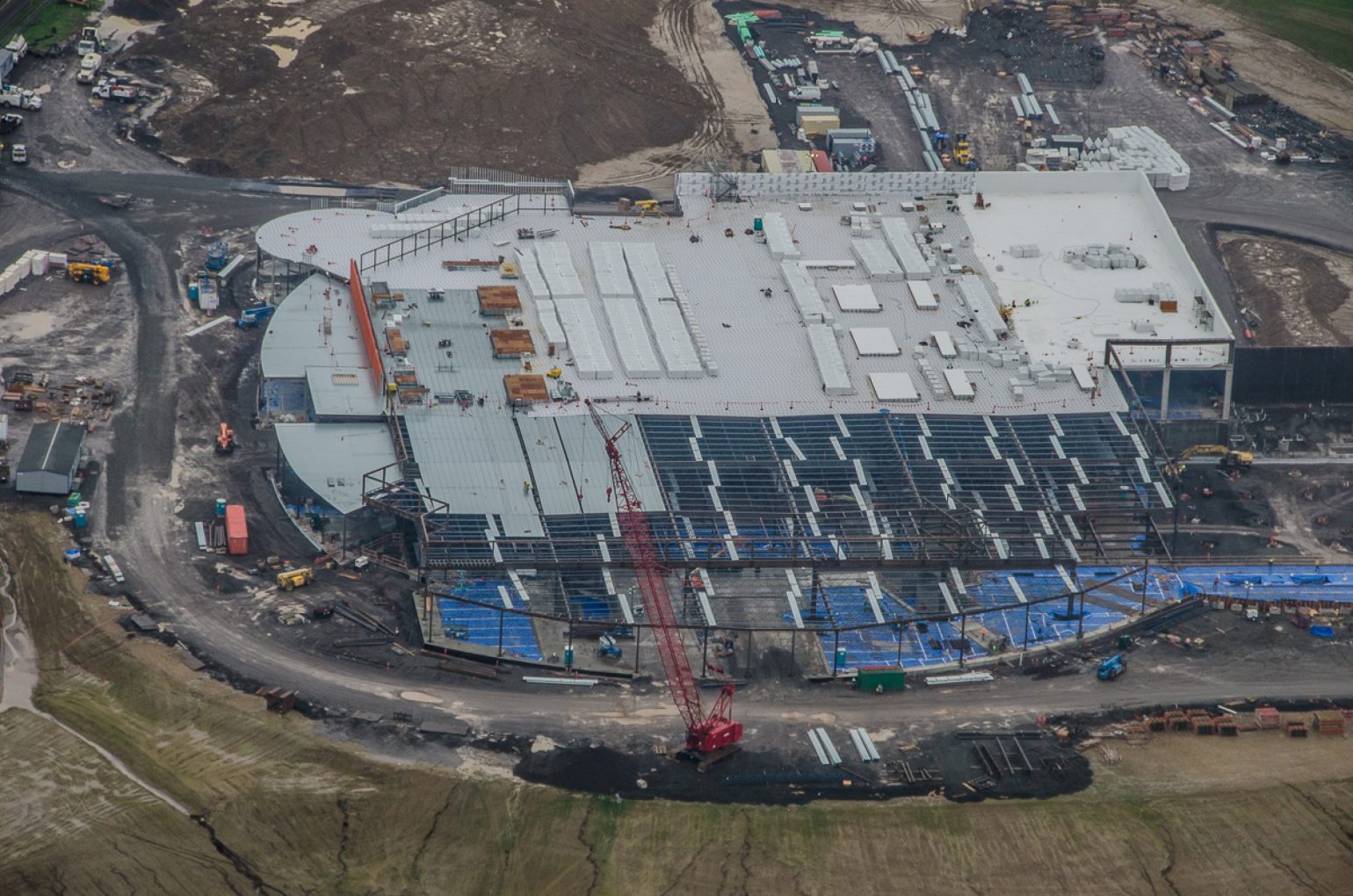The Cowlitz Tribe is bristling at Clark County’s threats to arrest construction workers who are installing a stormwater line on a portion of county road that runs across the Cowlitz Reservation.
In his letter Tuesday to the Clark County council, Tribal Chairman Bill Iyall said the county has no legal jurisdiction over the tribe’s federally protected reservation, and that the tribal government has full authority to develop its property and manage the existing rights-of-way that run across it.
“The county’s harassment of our construction workers must cease,” Iyall stated. “The tribe will use all legal means available to protect the tribe’s lawful exercise of its jurisdiction on the reservation.”
On March 10, the tribe sent its contractor, Swinerton Builders of Portland, a letter with instructions to proceed with plans to make a 5-foot cut across Northwest 319th Street on the reservation to install a 30-inch stormwater pipe. Swinerton notified the county that day about its intent to begin the installation in two to three weeks. The stormwater line is required as part of the 2012 plan for the property approved by the federal Environmental Protection Agency, according to tribal representatives.
In his reply March 10, Deputy Prosecutor Chris Horne wrote, “Please understand at this time you do not have authority to work on the county roads. If/when there is such an attempt, law enforcement will be called to preserve county roads. Please do not put the county in a position of arresting people.”
Iyall issued a statement Wednesday about the dispute, saying, “Clark County’s elected officials have ratcheted up their bullying tactics. … These county officials have gone too far, essentially trying to threaten much-needed jobs. … We urge the Clark County councilors to reconsider their actions and return to an agenda that is driven by the best interests of the community they serve rather than by the economic interests of the La Center cardrooms.”
Thursday, Horne said there were two separate issues: The county’s 2008 agreement with the tribe acknowledging that construction on the reservation would be governed by federally approved tribal law, and the county-owned road that runs across the reservation.
Horne said there was some dispute over whether the county owns the road or just owns an easement.
“Either way, we have a protectable interest in the street, and they require permission to do work in our road,” he said. “I have advised them that if they seek to damage the road, we will call the sheriff to protect the peace.”
In a phone call Thursday, Iyall said the county sheriff lacks authority to arrest people on the reservation. And jurisdictional issues aside, Iyall also questioned whether the sheriff would arrest someone over a civil matter.
Nevertheless, the threat of arrest has “hit home” with the nearly 200 union workers on the casino job site, he said, calling it “a threat to their livelihood.”
“They shouldn’t be put into that circumstance,” Iyall said.
Thursday, Sheriff Chuck Atkins said his deputies weren’t going to arrest people over a civil issue regarding a land dispute.
“There’s got to be a crime committed for us to make a physical custody arrest,” he said.
Because the tribe doesn’t have a police force and hasn’t entered into an interlocal agreement with any law enforcement agencies to police the reservation, the Clark County Sheriff’s Office ultimately is responsible for public safety on the tribal land, Atkins said. But due to the county’s lawsuit against the Cowlitz Tribe to block the casino, Atkins doesn’t know whether his deputies would be covered legally if they entered the sovereign land to assist with a problem during the casino’s construction, he said.
Last week, the Clark County council authorized Atkins to meet with the Bureau of Indian Affairs, tribal attorneys and tribal leaders to hash out how public safety on the reservation should be handled until the lawsuit is settled. Later, the tribe and sheriff’s office can enter a formal agreement, he said.
Tensions have been running high between the tribe and the county in recent weeks. In March, the county posted a “stop work” order on the reservation and filed a court motion asking a judge to stop the ongoing construction on the Cowlitz Tribe’s $510 million casino until a ruling is issued in the county’s appeals case against the tribe. However, the tribe ignored the stop work order, and the U.S. Court of Appeals for the Washington, D.C. circuit has not issued an injunction to halt construction. A ruling in the appeals case, in which the county and other appellants have argued the federal government wrongly gave the Cowlitz Tribe land for a reservation, is expected later this summer.
Scheduled to open in spring 2017, the Cowlitz Tribe’s three-phase project at Exit 16 initially will include a casino resort building of 368,000 total square feet with a 100,000-square-foot gaming floor, plus meeting facilities and 15 different restaurants, bars and retail shops. The casino will feature 2,500 slots, 75 gaming tables, 60 high-limit slots, five high-limit tables, plus a venue for meetings and conventions that can seat up to 2,500 people.





